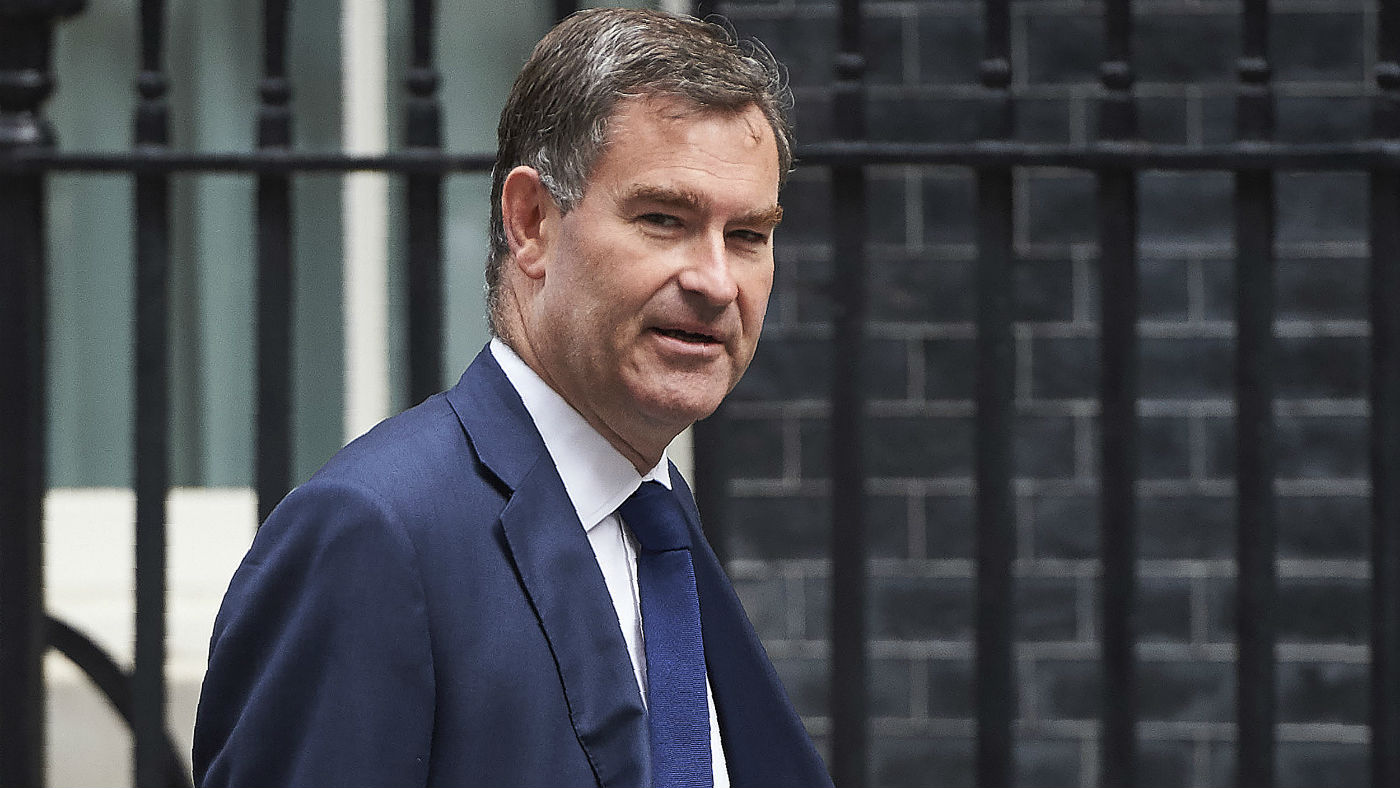How the state pension age has evolved and why it's rising again
No one qualified with the pension was first introduced. Now too many people do

A free daily email with the biggest news stories of the day – and the best features from TheWeek.com
You are now subscribed
Your newsletter sign-up was successful
So, it's (almost) official: if you're aged between 39 and 47, you won't receive your state pension until you are 68.
It's also possible that people in their 20s could have to wait until they are 70 to receive a payment – or that these controversial changes will be scrapped altogether.
Here's everything you need to know.
The Week
Escape your echo chamber. Get the facts behind the news, plus analysis from multiple perspectives.

Sign up for The Week's Free Newsletters
From our morning news briefing to a weekly Good News Newsletter, get the best of The Week delivered directly to your inbox.
From our morning news briefing to a weekly Good News Newsletter, get the best of The Week delivered directly to your inbox.
What has been announced?
David Gauke, the Work and Pensions Secretary, told parliament yesterday the government was increasing the pension age earlier than previously proposed.
The move follows the recommendations of John Cridland's report published earlier this year, in which he suggested that to keep the state pension affordable, a planned increase in the default age at which people qualify for payments to 68 be brought forward by seven years.
Instead of being phased in between 2044 and 2046, it will now be introduced between 2037 and 2039. So six million people born between April 1970 and April 1978 will have to wait a year longer, says the BBC.
A free daily email with the biggest news stories of the day – and the best features from TheWeek.com
Why is this change being made?
Pensions are now the single biggest burden on the state, accounting for more than £100bn a year, or more than 40 per cent of the welfare budget.
Ever-increasing longevity means the cost is also rising – people are quite simply living longer and so claiming a pension for longer. In addition, the rate of the state pension is guaranteed to rise by at least 2.5 per cent under the "triple-lock".
As the pension is a "pay as you go system", it is paid out of today's taxes, so working-age people are facing a greater burden. As the ratio of old people to working-age people increases, this will only grow.
Wasn't this considered when the state pension was introduced?
No. In fact, when the pension was introduced, most people didn't live long enough to qualify.
Germany introduced a state pension for older people in 1889 and Britain followed in 1908, initially only for poorer men aged over 70.
Berlin lowered the pension age to 65 in 1918 and the UK effectively did the same when it introduced a contributory scheme for manual workers in 1924, when the average life expectancy was less than 60.
That is where the state pension age has remained, having been enshrined in the first full state pension legislation in 1948, despite life expectancy having risen to around 80 for men now.
Women's pension age has moved from an initial level of 60 in 1940 to 63 now – and it'll be equalised with men next year. Women currently live to an average age of 83.
The first increase from 65 takes place in 2020, when the pension age will rise by one year. It will then hit 67 between 2026 and 2028.
How will this new change help?
Gauke said it will save the government £74bn by 2045/46. "While it had been due to spend 6.5 per cent of GDP on the state pension by 2039/40, this change will reduce that figure to 6.1 per cent of GDP," adds the BBC.
Is that the only change being made?
For now, yes. Cridland also suggested scrapping the triple-lock to save even more, as it has done its job of addressing a relatively high poverty level among older people.
The Tories pledged to do this at the general election, but ditched the policy as part of its deal with the Democratic Unionist Party after losing their majority.
As for the state pension age, it could rise further in the years to come. The government has committed to keeping the age under review and its actuarial department has suggested it should be pushed up to 70 between 2054 and 2056.
Is this set in stone?
No. As the Daily Telegraph says, the change is controversial and the government has only a slim majority in parliament. Even that depends on the support of the DUP, which was elected on more pensioner-friendly proposals.
Perhaps reflecting this parliamentary arithmetic, "the government has said the legislation confirming the new timetable doesn’t need to be in place until 2023 – one year after the next scheduled general election".
Labour is opposed to the plans and campaigned on a manifesto to scrap all pension age increases after the move to 66.
It, like the unions and campaigners such as former pensions minister Baroness Ros Altmann, wants to see a move to a variable pension age that takes into account very different life expectancy in different parts of the country or for different occupations.